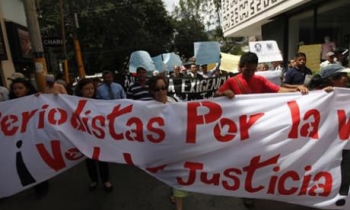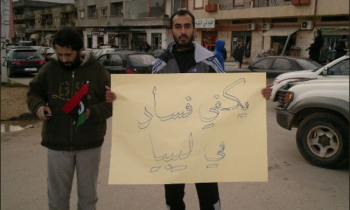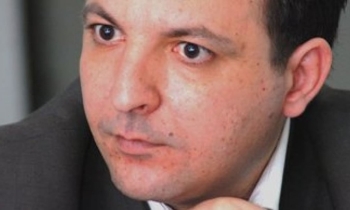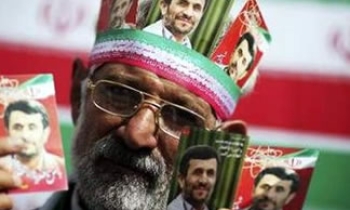After a week of keeping critics on tenterhooks, the Indian government now seems determined to push through the draconian Broadcasting Services Regulation Bill 2006. Once made into an Act, it would be something that would even made Russian President Vladimir Putin blush.

On July 16, Union minister for information and broadcasting Priyaranjan Dasmunshi not only ruled out any discussion with the broadcasting industry, but went on to assert that the Bill would neither be "diluted" nor "polluted". If that was not all, the minister promised to bring up the Bill in the ensuing monsoon session of Parliament. The monsoon session of Parliament will be held between July 24 and August 19.
"I can say with responsibility that the Bill will be a media-friendly, progressive legislation not seen anywhere in the world," Dasmunshi said at the one-day conference of the Indian Languages Newspaper Association in New Delhi. The minister, however, did not say why he repeatedly fails to condemn attacks on journalists in India.
The minister attempted to lob the ball into the court of the mainstream English media, according to a Press Trust of India (PTI) report. "Do their journalists enjoy freedom in their own organisations and is their work not subjected to pressures from the management?" he questioned. Dasmunsi said the media was correct in highlighting the shortcomings of the government or its various schemes. "However, if you just report the negative and do not highlight the positive, it will not help anyone," he said.
That the government is adamant about pushing through the Bill unilaterally was evident from the response of the information and broadcasting secretrary SK Arora to a delegation of the Indian Media Group (IMG) which met the bureaucrat last week. He told them that drawing up the legislation was the prerogative of the government and it may or may not consult broadcasters at every stage. So far, it has not any any stage.
The media owners, however, seemed to be more concerned about commercial effects of the Bill than freedom of expression. The Bill proposes to cap cross-media ownership at 20 per cent and restructure sharholding patterns. A broadcaster, therefore, cannot have more than 20 per cent stake in another broadcasting network, a cable network or DTH or a radio network. Just like FM Radio operators, television networks will not be allowed to own more than 15 per cent of the total number of channels. IMG is not a press freedom association, but one of domestic media and entertainment companies.

The dismissive attitude of the government over consultation with the media over the proposed Act comes days after reports that it was likely to take a relook at some of the contentious clauses of the Bill and was keen to take the media industry into confidence before getting on with the process of formulating laws for governing them.
"The information and broadcasting secretary assured us that he will look into the contentious provisions of the draft bill and will do everything possible to involve the industry in the consultation process," officials of the Indian Broadcasting Foundation (IBF) told the Financial Express after a meeting with secretary Arora.
Meanwhile, the International Federation of Journalists (IFJ) has expressed concern over the Bill which also hints at strict content regulation for news channels. "While IFJ supports any move to prevent monopolistic control of the media in the hands of a few corporations, journalists and unions must ensure that the proposed changes to the Broadcasting Services Regulation Bill do not allow for the abuse or stretching of the law by the Indian government in any situation," said IFJ President Christopher Warren.
There is also concern that the Bill — which will effectively regulate private broadcasting —provides for punishment like revocation of licences and fines on those who violate the proposed broadcast guidelines, including the Content Code under preparation, if their service is considered "prejudicial to friendly relations with a foreign country, public order, communal harmony or security of the state," which are not specifically defined.
"IFJ, along with its affiliates in India, must monitor the establishment of the new Broadcasting Bill to ensure that press freedom isn't restricted or violated, and that it does in fact benefit journalists and allows for free dissemination of news to communities," Warren said.

The Broadcast Bill 1997 could never be enacted because of innumerable contentious issues that were embedded in the draft legislation. The new Bill codifies a framework of guidelines and proposes to set up a Broadcasting Regulatory Authority of India (BRAI) with both a licensing and oversight function covering terrestrial as well as satellite services and cable networks, including DTH, conditional access systems, emerging digital/computer modes and community radio. Licensing would be mandatory.
It is the attempts to control content which threatens freedom of expression. BRAI can refuse to register a channel or even cancel its registration, after due hearing, if its content "is likely to threaten the security and integrity of the State or threaten peace and harmony or public order in the whole or part of the country."
BRAI can also do the same if the name or logo or symbol of a channel is in any way obscene, similar to that of a terrorist organisation or the brand or symbol of any prohibited product, or similar to that of any well-known foreign channel. The phrase "likely to threaten" could permit subjective or vindictive judgements to prevail without redress other than petitioning the Supreme Court for exceeding "reasonable restrictions" as permitted under Article 19(2) of the Constitution, wrote columnist and veteran journalist BG Verghese in Daily News & Analysis.
"You can't promise freedom with clauses and caveats. So, when the government says the Bill it is bringing to Parliament is not meant to curb the freedom of the media, but only to ensure your and my freedoms, you can be sure there's serious doubletalk. This is not a space the State is supposed to enter, certainly not in a robust democracy as we claim ourselves to be," filmmaker Pritish Nandy wrote in the Times of India.
Every authorised BRAI officer shall have the power to prohibit any service provider from transmitting or retransmitting any programme or channel, "if it is not in conformity with the prescribed Content Code, or if it is likely to promote feelings of disharmony or of enmity, hatred or ill-will between religious, racial, linguistic or regional groups or castes or communities or which is likely to disturb public tranquility." According to the draft Bill, the government will have the power to make rules from time to time.

Moreover, every authorised BRAI officer shall have the powers to inspect, search, seize equipment under Section 24 and prosecute on a written complaint by the concerned licensing authority, according to the draft Bill which has proposed setting up of a broadcast regulator, which would issue licences to cable operators.
Apart from empowering government officials of the ranks of district magistrate, sub-divisional magistrate or police commissioner to barge into newsrooms are seize equipment, Section 37 makes it clear that the officials' action cannot be challenged even in court. "No civil court shall have the jurisdiction to entertain any suit or proceedings in respect of any matter which the Authority or the Licensing Authority is empowered by or under this Act to determine," the draft Bill says.
"The State now wants to arrogate to itself the right to storm into any press, any broadcasting studio, any cyber cafe to stop news from reaching you and me. And, horror of horrors, it demands that the law cannot intervene. Even Idi Amin's Uganda and Saddam's Iraq would have been ashamed of such a Bill. How come India 2006 is even considering it?" Nandy wondered.
"It has been the universal experience of nations that it is far too dangerous to entrust such sweeping powers of controlling content to the government. Such powers are bound to be misused by the government, which will eventually completely compromise the freedom of the media and reduce them to instruments of the government. These provisions will also violate of the fundamental right of free speech, which includes a free press, and should be struck down as being unconstitutional," Supreme Court lawyer and rights activist Prashant Bhushan wrote in Outlook.
One will have to wait till Parliament starts deliberations on the Bill.









